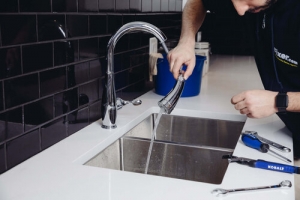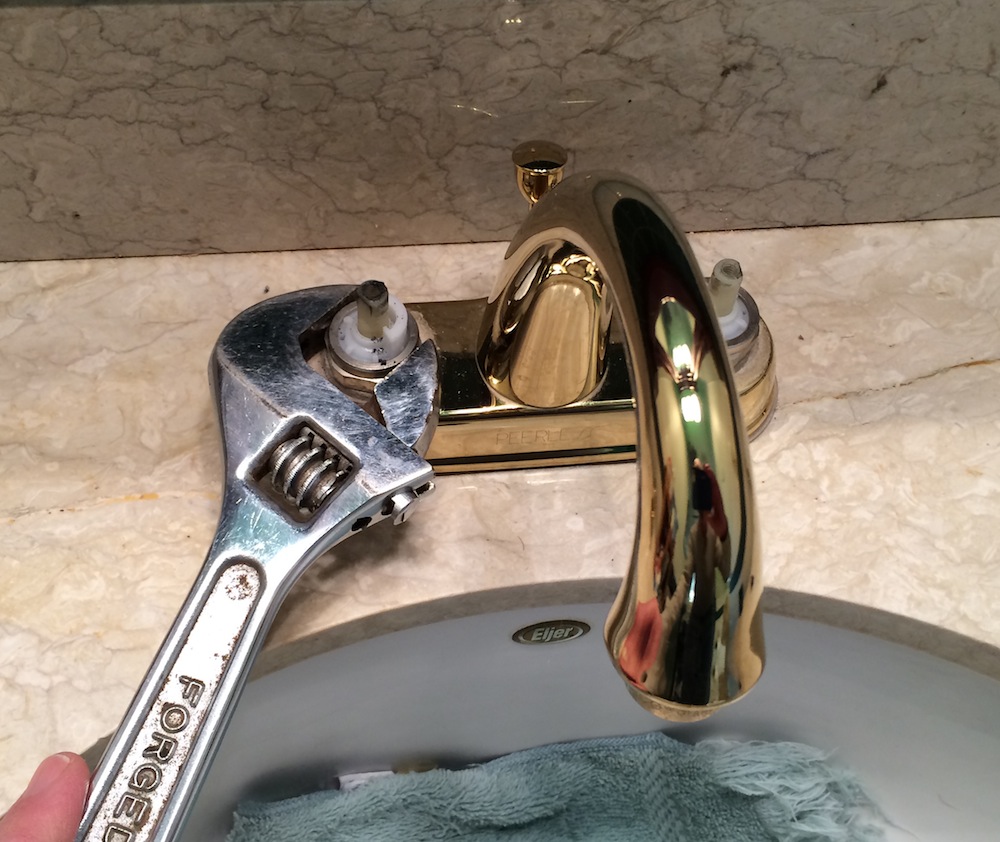Your Factors Behind Repairing a Dripping Faucet
CallWe've found this great article involving What Causes Leaky Faucets & How To Fix Them listed below on the internet and accepted it made perfect sense to write about it with you in this article.

Dripping faucets might look like a minor hassle, however their impact goes beyond simply the aggravation of the audio. From drainage to incurring unnecessary economic expenses and health and wellness threats, neglecting a dripping tap can cause different consequences. In this post, we'll explore why it's crucial to resolve this common house problem quickly and effectively.
Waste of Water
Ecological Effect
Dripping taps contribute substantially to water wastefulness. According to the Epa (EPA), a solitary faucet trickling at one drip per second can lose greater than 3,000 gallons of water per year. This not just pressures water resources but likewise influences ecosystems and wildlife depending on them.
Financial Costs
Enhanced Water Bills
Past the environmental influence, dripping taps can pump up water bills considerably. The accumulated wastefulness in time converts right into higher utility expenditures, which might have been prevented with timely fixings.
Potential Building Damages
Moreover, long term leaking can result in harm to fixtures and surfaces bordering the faucet. Water buildup can trigger discoloration, rust, and also structural issues if left neglected, causing extra repair prices.
Health and wellness Issues
Mold And Mildew and Mildew Development
The continuous visibility of wetness from a dripping tap creates an ideal setting for mold and mold growth. These fungi not just compromise indoor air high quality yet likewise posture health dangers, specifically for individuals with respiratory system conditions or allergies.
Waterborne Illness
Stationary water in trickling taps can become a breeding place for microorganisms and other pathogens, enhancing the danger of waterborne illness. Impurities such as Legionella microorganisms grow in stationary water, possibly causing significant ailments when consumed or breathed in.
Do it yourself vs. Specialist Fixing
Pros and Cons of Do It Yourself Fixing
While some might attempt to take care of a trickling faucet themselves, do it yourself repairs feature their own set of obstacles. Without appropriate understanding and devices, DIY attempts can worsen the problem or bring about incomplete repair work, lengthening the problem.
Advantages of Hiring an Expert Plumber
Working with an expert plumber makes sure that the underlying source of the trickling tap is resolved effectively. Plumbings have the competence and tools to diagnose and repair tap concerns efficiently, saving time and reducing the danger of more damages.
Step-by-Step Overview to Fixing a Dripping Faucet
Tools Required
Before attempting to repair a leaking faucet, gather the required tools, including a flexible wrench, screwdrivers, replacement parts (such as washers or cartridges), and plumber's tape.
Common Tap Issues and Their Solutions
Recognize the kind of faucet and the specific concern causing the drip. Typical troubles include worn-out washing machines, corroded shutoff seats, or faulty O-rings. Describe manufacturer directions or on-line tutorials for detailed guidance on repair work.
Safety nets
Routine Maintenance Tips
To avoid leaking taps, perform routine maintenance such as cleaning up aerators, checking for leaks, and replacing damaged components immediately. Furthermore, think about mounting water-saving tools or updating to extra reliable components.
Value of Prompt Fixes
Attending to leaking faucets as quickly as they're seen stops additional water wastage and potential damage, eventually saving both water and money in the future.
Effect On Residential Property Value
Assumption of Well-Maintained Residential Property
Preserving a home in good condition, consisting of dealing with upkeep problems like trickling faucets, improves its perceived worth and desirability amongst possible buyers or occupants.
Impact on Resale Value
Features with well-maintained plumbing components, consisting of taps, command greater resale values in the property market. Dealing with leaking faucets can add to a positive perception throughout residential or commercial property inspections and negotiations.
Environmental Responsibility
Individual Payment to Preservation
Taking obligation for taking care of dripping faucets straightens with more comprehensive efforts towards water conservation and environmental sustainability. Every person's actions jointly make a substantial effect on preserving precious sources.
Lasting Living Practices
By prioritizing timely fixings and taking on water-saving habits, individuals add to lasting living techniques that profit both existing and future generations.
Final thought
Attending to a leaking faucet goes beyond plain ease; it's an essential action towards saving water, decreasing economic expenses, and protecting health and property. Whether through do it yourself repair services or professional aid, acting to fix leaking faucets is a little yet impactful way to promote accountable stewardship of sources and contribute to a much healthier, more sustainable future.
Why Are My Faucets Dripping (And Can I Fix it Myself)?
Causes of a Dripping or Leaking Faucet
Whether you’re hearing drops of water falling and hitting a sink, or noticing water ooze out from the base of the spout, you shouldn’t ignore a dripping or leaking faucet. And, the good news is, sometimes you can fix the problem yourself.
In this article, we’ll review a few common causes of dripping and leaky. We’ll also walk you through some basic ways to find the problem and handle it without calling anyone — and let you know when to call in a pro.
But, no matter what the cause, or whether you can handle it on your own, the sooner you address it, the better.
Each drip may be a tiny amount of water. But, they all add up quickly. According to the U.S. Geological Survey, one faucet losing one drop every 20 seconds — five a minute — wastes around a liter of water every day, and 173 gallons a year.
Add in more than one in your house, and it’s a lot of water to waste. So, we’ll help you get to the bottom of things quickly.
Four Reasons Your Faucet May Be Dripping
Aerator is Damaged or Unseated Valve Seat is Corroded O Ring is Loose or Worn Out Part of the Assembly is Loose Aerator is Damaged or Unseated
If you unscrew the end of your faucet, you’ll find the aerator. It’s the little stem piece with a screen on it that shuts off the water circulation.
If it’s damaged, or if it’s not sitting right, it will allow water to pass through.
Valve Seat is Corroded
Next is the valve seat, which is connected to the washer. If the washer wasn’t in place correctly, then it could have ground against the seat. Over time, this damages the valve seat.
The problem could also be corrosion: Over time, the part has worn out, and it’s now allowing water to pass through.
O Ring is Loose or Worn Out
Since the o ring is only a small rubber gasket, it’s a common reason why the faucet is dripping. You’ll find it at the base of the faucet, and it’s there to keep water from coming out where it’s not supposed to.
However, it’s common for the o ring to wear out over time. When it does, you’ll notice a drip.
Part of the Assembly is Loose
So far, we’ve looked at a few small, specific parts. But, the problem could be anywhere in the assembly if something’s out of place.
Even if a part isn’t damaged, over time, it may have become loose or dislodged. It could be the parts we mentioned, or the aerator at the tip of the faucet, the stem itself,
Can I Fix a Leaky Faucet Myself?
Depending on the problem, and how handy you are, there’s a chance you can fix a leaky faucet without calling a professional. But, you do run the risk of making the problem worse.
If it’s a small drip, you can certainly try a few troubleshooting tactics. We’ll walk you through them in a moment.
But, no matter what, your first step should be shutting off the water coming into the faucet. You should find a shutoff valve under the sink on the pipes leading to it. Turn each one clockwise until they close tightly.
Next, make sure you have the right tools for whatever you’re attempting. It’s tempting to make do with what you have. But, you need the right ones for a reason: You’re often dealing with small parts that can break if you handle them carelessly.
If you’re feeling confident, here are some places to start.
Items Near the Tip of the Faucet
A few of the parts we mentioned — particularly the valve seat and washer — are located at the tip of the faucet where the water comes out. They’re easy to access, making it a good place to start.
Check the O Ring
To check the o ring, you’ll need to take off the spout at the base. It’s easiest on kitchen sinks with long spouts, versus the smaller, bulkier base on most bathroom sinks.
Either way, this can be tricky, so do it carefully and don’t force anything. If it’s not coming right off, you’re much better off calling in a pro than possibly breaking something.
For a kitchen sink, there’s usually a nut or coupling assembly at the base of the spout. These often slide off easily without using any tools.
Once you’ve disassembled those parts, gently but forcefully twist off the spout.
Then, you can see the o rings. There should be two of the rubber gaskets on the base. If they look worn or damaged, replace them, and see if that solves the problem.

As a serious person who reads about Why It's Important to Fix Leaky Faucets, I figured sharing that editorial was smart. For those who appreciated our blog post please be sure to pass it around. Thanks so much for taking the time to read it.